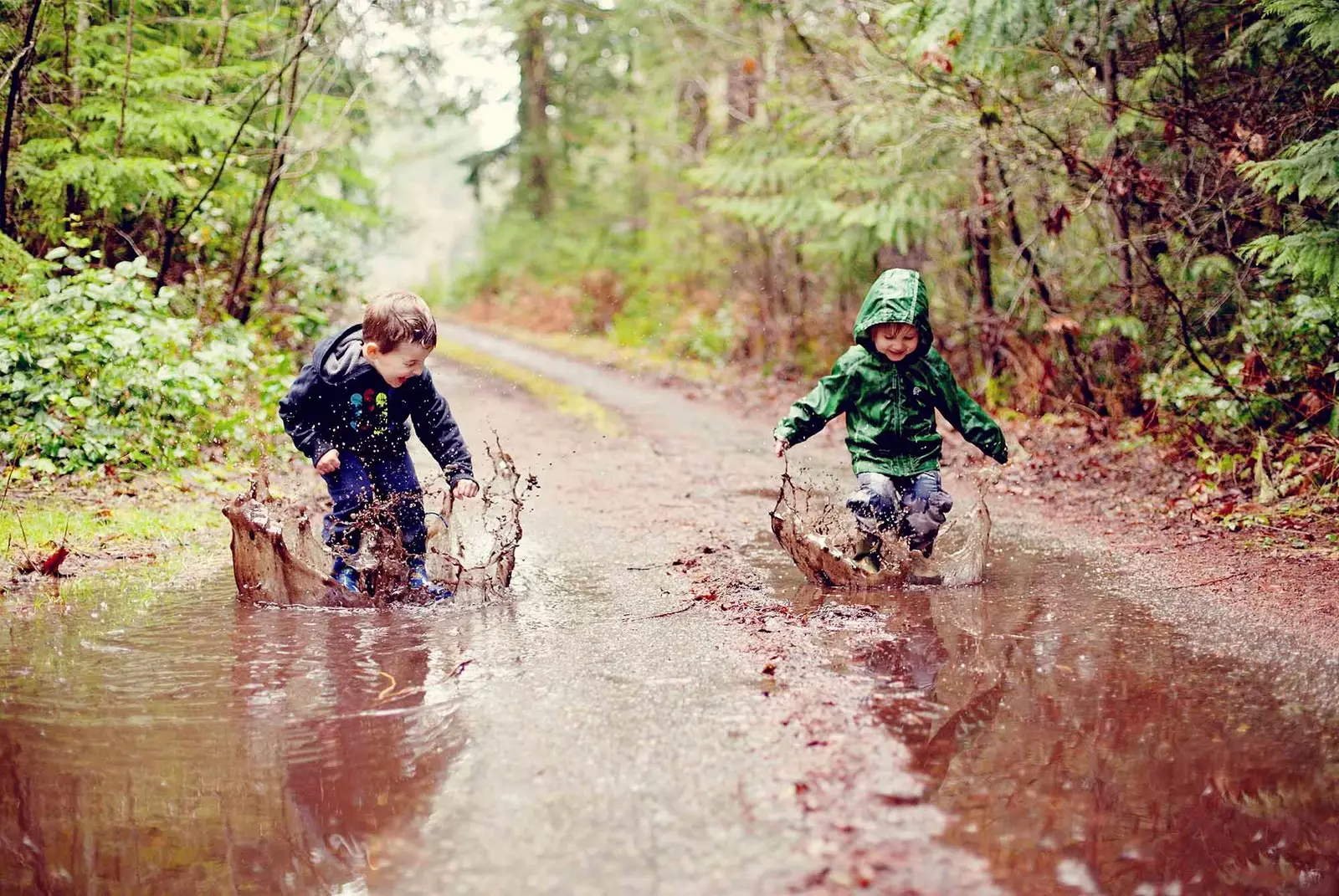
Children may need much less than we think to be happy
At Traveler we are tireless travellers, even with children: we like to take them to theme parks and the beach, but also to small towns and European capitals, even when they are babies!
That is why we were so astonished to read the declarations of Oliver James, one of the UK's most reputable child psychologists , which he claimed, in a article for The Telegraph , that you should not take your children abroad. "Vacation from home is what most kids really want," he said, referring to spending free time in a quiet, familiar place to return to year after year.
The expert gives the example of what he lived with his family: for almost a decade, he was taking their children every August to Cornwall (Cornwall), on the English coast. But when they turned eight and 11, respectively, he decided to plan a trip to France with them.
“The oldest was old enough to appreciate the novelty of it all: the way French cheese, flea markets and even sunscreen seem different. But the younger was not impressed at all. And the following year, they both insisted we go back to cornwall . Now they're 12 and 15 years old, and we still go back to the same place every summer," James said.

Children prefer a familiar and quiet place
THE EXPLANATION
The scientific reason behind the professional's children's request to return to the same place over and over again is based, according to James, on the fact that the pleasures that children experience until they enter adolescence are quite simple . Added to this is the fact that they are surprisingly nostalgic.
“Between the ages of five and ten, children can become very attached to one place, where they can be sure of what they will and won't like,” he says. “Sitting on the same donkey, eating the same ice cream in the same cafe ... These familiar places and activities are what forge your happiest memories ”.
Laura Górriz, director of the Center for Family, Child and Adult Psychology (FIA) consulted by Traveler.es, agrees with this statement: “We must bear in mind that children of these ages feel more comfortable within routines , that changes can make them uncomfortable and that, in a foreign country with cultures very different from their own, they can experience stress and general malaise ”, she analyzes.
However, the psychologist does not defend that we stop traveling with them, but rather Let's adapt our vacations to make them consistent with their age and needs, so that the experience is positive for everyone.

Children enjoy quite simple pleasures
“Children until puberty can have difficulty regulating their emotions, so they still they are not ‘equipped’ to deal with emotionally intense situations on their own ”, She manifests.
“If we are going to live an experience that implies an important change for children, we must do it with caution, with good accompaniment and preparation of what they are going to see, hear, smell and touch, of the people they are going to meet, of what they are going to do and for how long (although the passage of time is something abstract for them). And we will also try to let them know that, if they feel uncomfortable for any reason, they can tell the adults who accompany them so that they can act accordingly.
MORE ADVANTAGES OF RETURNING TO THE SAME PLACE
It is not until adolescence, says James, that we begin to find novelty exciting and attractive. But even then, "children today are under so much pressure that the associations they make with a particular place where they know they can go back and be free of it, can be very powerful and positive ".
It is an extreme with which Górriz also agrees. “ Children's lives today are full of activities, fast times for everything, and yet of lack of time to rest and relax. If we offer them a stable vacation spot that is always the same, they will enjoy that time to disconnect, to reconnect with friends and family that coincide with them, to repeat the activities they love and to share quality time with their parents.
